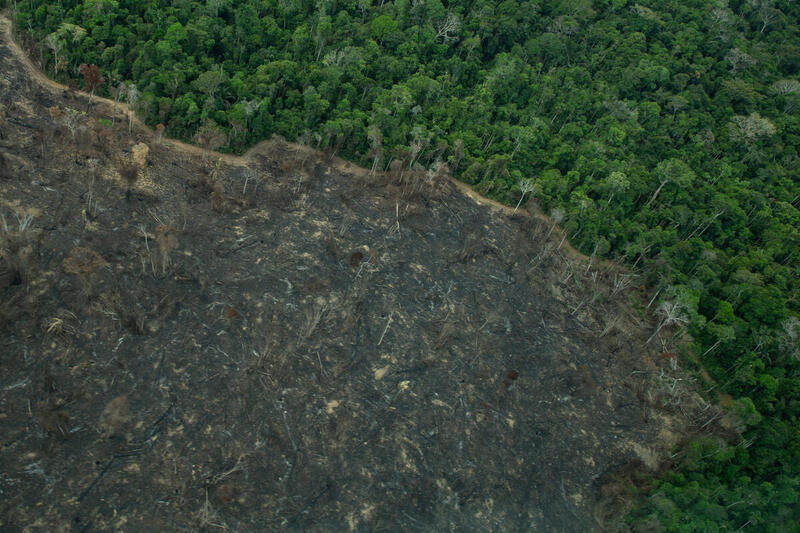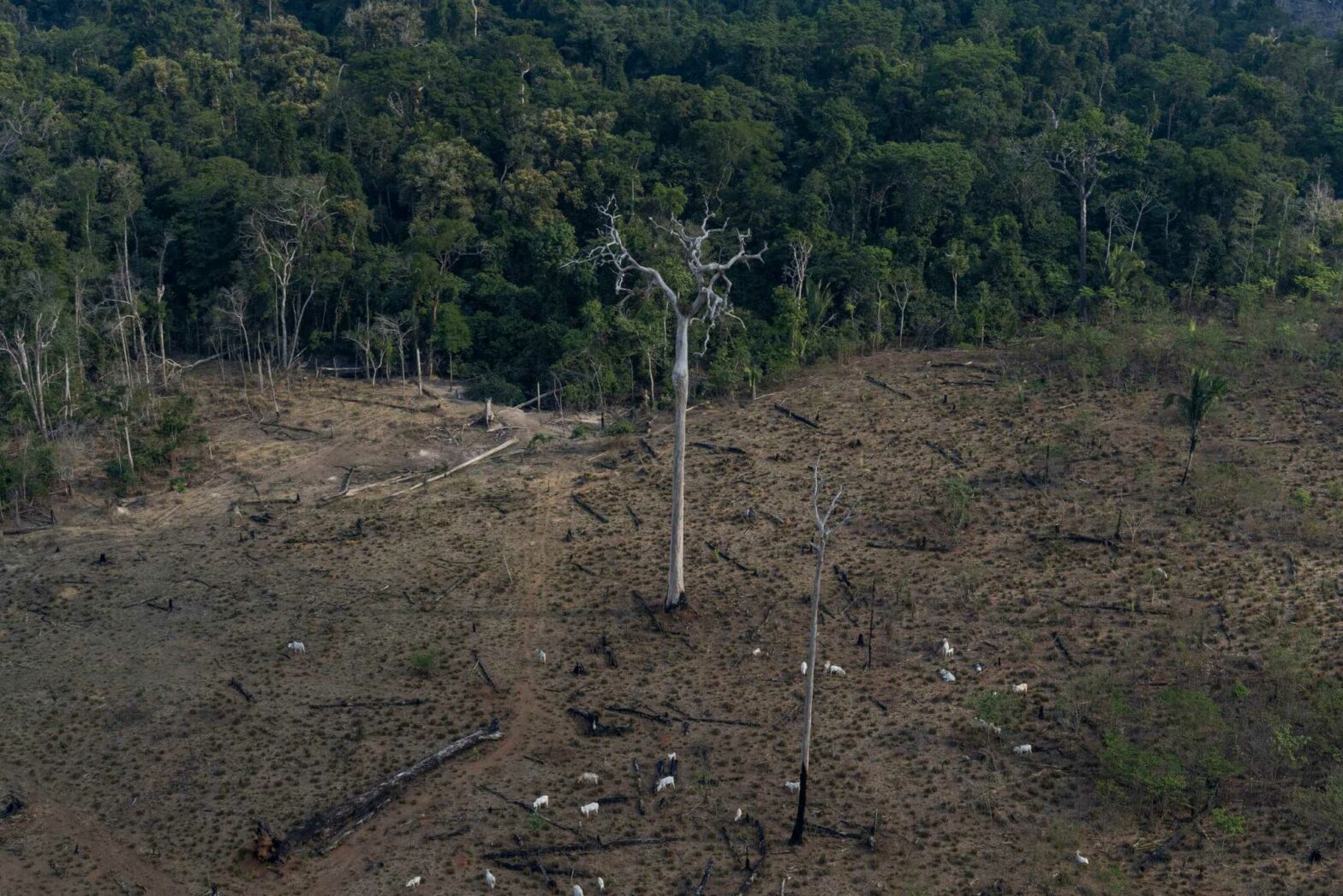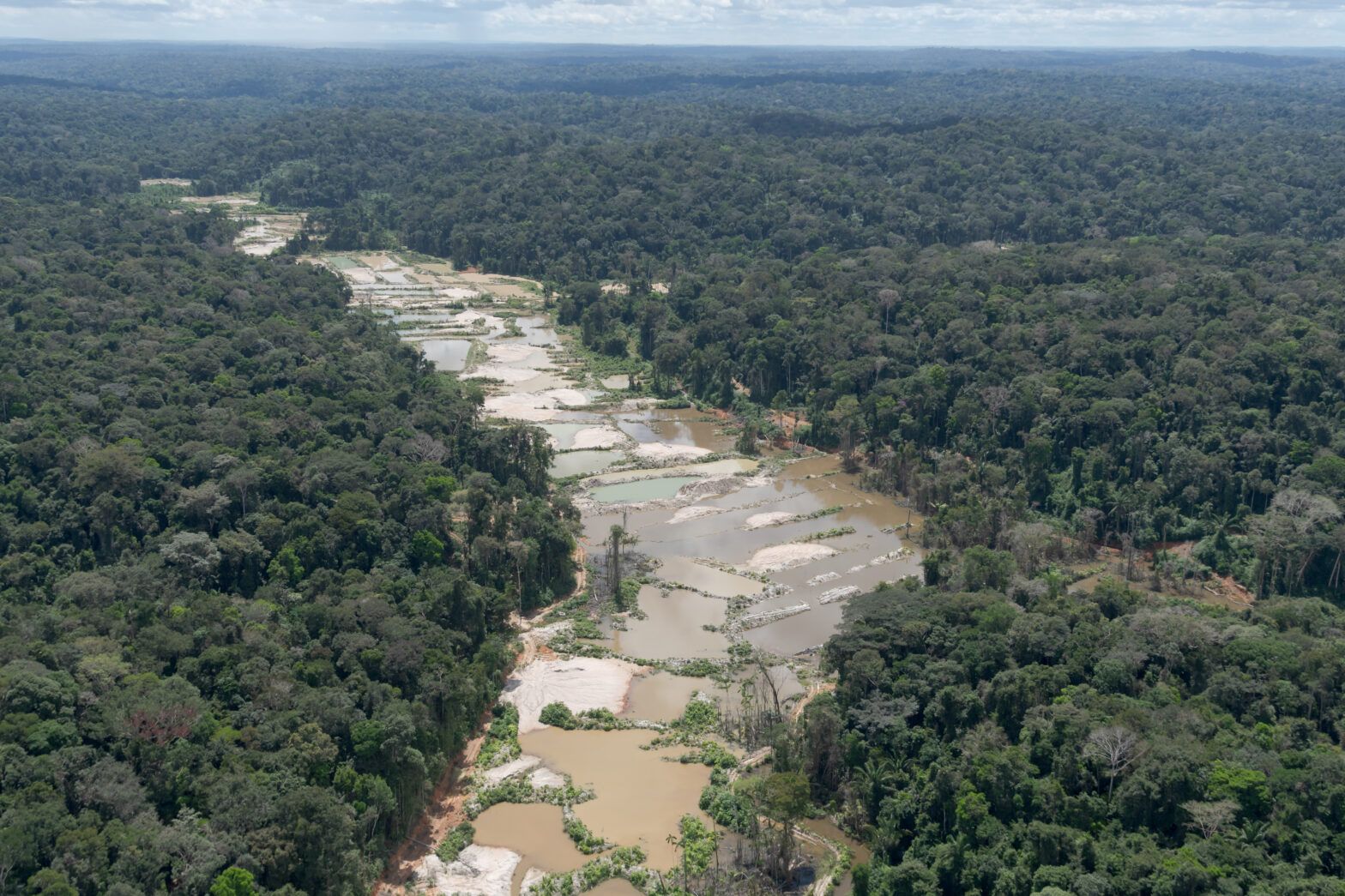Studies show how corruption occurs in the forest, from land grabbing and land theft, and how it is considered a good deal because of impunity. In the case of the gold trade, the law itself favors laundering.
Launched in 2019 by the Federal Police and the Federal Prosecutor’s Office (MPF), Operation Ojuara accused a former IBAMA director, business executives, farmers, and police officers of crimes related to deforestation in protected areas in the Amazon. They used militias to harass indigenous people and bank accounts of intermediary frontmen (known as “laranjas”, oranges, in Brazil) to clean up profits and items bought from sales of illegal timber and cattle.
The scheme revealed by the operation is common in crimes that harm the forest and its peoples, as revealed by a survey by Transparency International. Opening shell companies, falsifying documents, using cash, and dividing financial deposits into many small transactions are some of the practices used to “legalize” land and goods such as wood, meat, and gold consumed in Brazil and abroad. For the study, the entity analyzed 11 operations by the Public Prosecutor’s Office and police in eight Amazonian states and in land conflict-prone regions of the Northeast to understand the modus operandi of corruption linked to land grabbing.
“The laundering of ‘environmental assets’ (such as cattle, wood, land, etc…) seeks to hide the criminal origin of these explorations and businesses, which occur through the theft of public assets, in illegal areas, or without licensing of environmental agencies,” explained Joachim Stassart, a researcher in Transparency International’s Social and Environmental Integrity Program.
Maneuvers to legalize cattle from areas invaded by land grabbers were, for instance, by the Rios Voadores (Flying Rivers) Operation, carried out by the Federal Police, IBAMA, and the Federal Revenue Service in 2016. Documents regarding sales to slaughterhouses were obtained by transferring the cattle to regular farms, registered in the name of frontmen – “oranges” – to mask the real owners. According to the Federal Prosecutor’s Office and Ibama, the gang moved R$1.9 billion and deforested 330 km² in Altamira, Pará between 2012 and 2015, an area that is equivalent to the municipality of Belo Horizonte (MG).
The study points out that this type of crime can be dealt with by administrative measures, without creating new laws, and that tax evasion, money laundering, and other property crimes should be investigated along with land grabbing schemes. Lawyers, brokers, and notaries must be held responsible for land registration fraud. In addition, it is necessary to improve, deepen, and integrate land databases and inspection actions in federal and state agencies.
Suggestions for fighting land grabbing:
1- Improving land governance, with integration of the registries and strengthening local agencies
2- Improve transparency and social control over land registries and land regularization processes
3- Reinforcing control and fiscalization actions against land grabbing
4- Mobilizing anti-corruption and anti-laundering tools and institutions
Source: study “Fragile land governance, fraud and corruption: a breeding ground for land grabs”
“Lack of transparency and control over who owns what land and how it is used in the Amazon facilitate crimes such as the legalization of land grabbing while complicating the defense of the rights of indigenous and traditional populations and squatters, leaving them more vulnerable to crimes,” added Stassart, holder of a master’s degree in Human Rights from the Paris Institute of Political Studies (France).
Law facilitates gold laundering
Gold is another product susceptible to corruption in Brazil and one of the products most sought out by legal and illegal mining. In early December, each troy ounce (31 grams) of gold was quoted at almost R$10 thousand (USD$1.8 thousand) in global markets. In Brazil, gold laundering was facilitated by a federal law passed in Congress in 2013, based on a provisional measure by the Dilma Rousseff government. Gold laundering involves “buying stations”, small wood or masonry houses in cities and mines throughout the Amazon, and Securities Distributors (DTVMs), financial institutions who are akin to real estate brokers under the Central Bank.
“The law provides that this trade is done in ‘good faith’ and allows the purchase of gold without any proof of origin. Then, the DTVMs market the mineral in domestic and international markets. This is completely uncontrolled and there are strong indications that Brazil consumes and exports a lot of clandestine gold,” said Sérgio Leitão, executive director of the Escolhas Institute.
A study by the Institute pointed out that the origin of 19 of the 110 tons (17%) of gold exported by the country in 2020 was uncertain. The total exportations totaled US$4.9 billion (R$27 billion, at the current quotation). The suspected gold was exported from Minas Gerais, São Paulo, Amazonas, the Federal District, and Goiás, states which did not officially extract the metal or exported much more than they produced.
In mid-2019, the Federal Police acted against a financial institution in São Paulo that allegedly bought illegal gold from the Tapajós River Basin, in Mato Grosso, Pará, and Amazonas. The region is the largest illegal mining hub in Brazil. The Federal Justice and Federal Prosecutor’s Office estimate that the company acquired more than R$16 million in illicit gold with false documents. “Demanding evidence that gold, meat, soy, and timber have been produced in legal and sustainable ways can keep criminals out of these businesses, even at the expense of the profits of formal markets that accept products of dubious origin. They will either clean these production chains or face growing trade demands from the European Union, the United States, and China”, said Sérgio Leitão.
Demanding evidence that gold, meat, soy, and timber have been produced in legal and sustainable ways can keep criminals out of these businesses, even at the expense of the profits of formal markets that accept products of dubious origin.
Sérgio Leitão, executive director of the Escolhas Institute.
A bill by Senator Fábio Contarato (Rede-ES) demands “mining and environmental tracing” to reduce crime and impacts on urban and rural populations, such as the case of mercury contamination of the Yanomami, Munduruku, and other indigenous populations. The text was proposed in August and is not yet being debated before the Senate. A recent report by the Cipó Platform also recommends greater air traffic control in mining areas (as a lot of gold is transported in small aircraft) and compliance with the Minamata Convention by the Amazonian countries, which would reduce the trade in mercury, used in legal and criminal gold mining.
High (criminal) profits
A report on money laundering by the Financial Action Task Force, created in 1989 by the G7 countries, assesses that crimes such as deforestation, illegal mining, and trafficking are, financially speaking, “low risk and high return” activities. “In many countries, environmental crimes are a source that secures billions in gains for criminals due to light sanctions added to limited efforts to monitor and reduce these profits. This fuels corruption and converges with many other serious and organized crimes, such as tax fraud, drug trafficking, and forced labor,” the text points out.
The analysis details how crime can be stopped if governments and the private sector pay more attention to the circulation of profits from environmental crimes in markets and financial sectors, and strengthen the joint action of national and international law enforcement agencies. In Brazil, environmental crimes such as gold mining have been incorporated into the National Strategy Against Corruption and Money Laundering. Measures such as these are hampered by the Bolsonaro administration’s actions, also supported in Congress, such as stimulating mining in protected areas and dismantling environmental surveillance.
“Bills that can be approved at any time in the National Congress undermine indigenous rights and open their lands to mining and power generation. Other bills maintain a vicious cycle, regularizing invaded public lands, an incentive to new crimes”, highlighted Joachim Stassart, from Transparency International.
Story by InfoAmazonia for the PlenaMata project.





